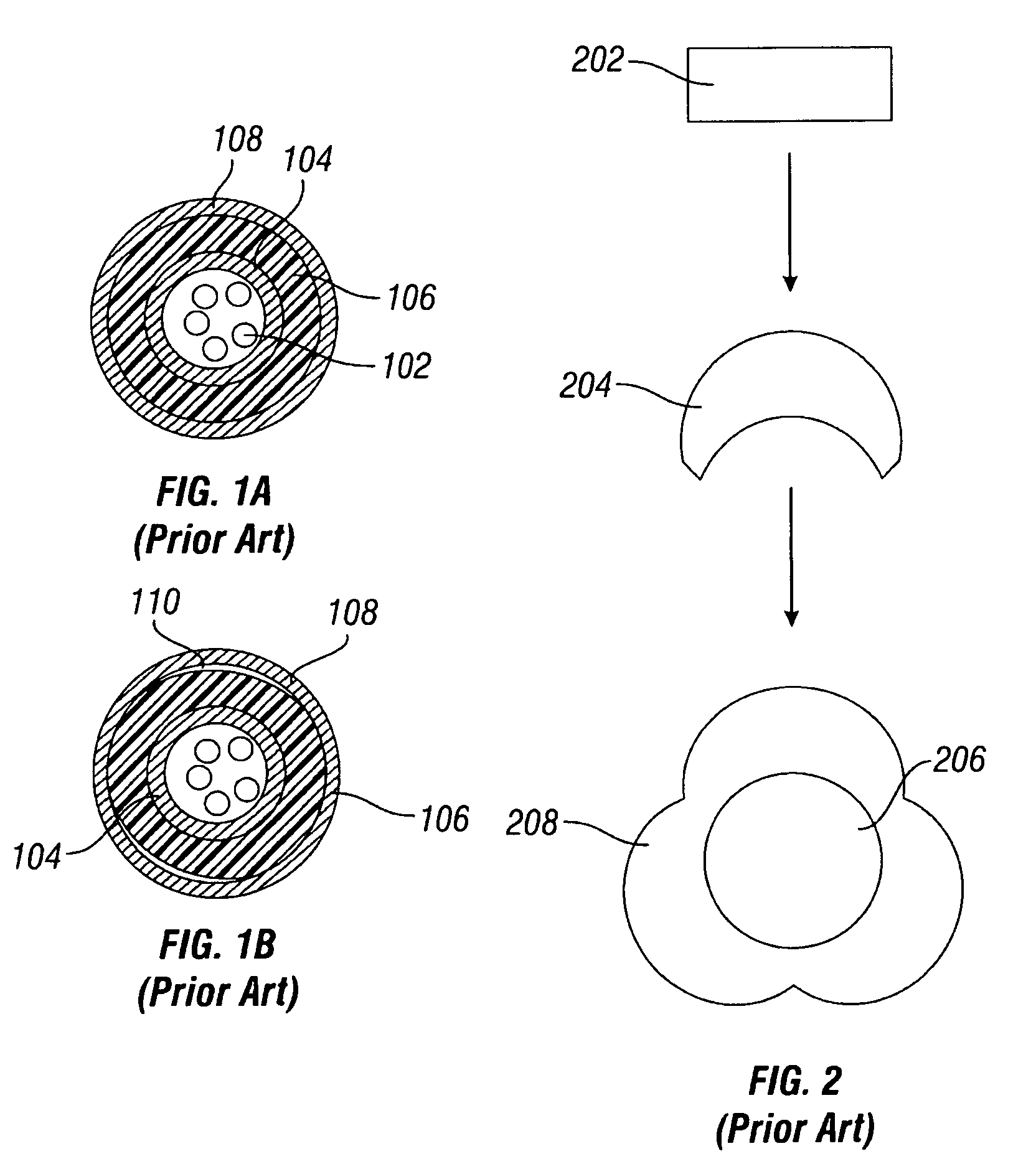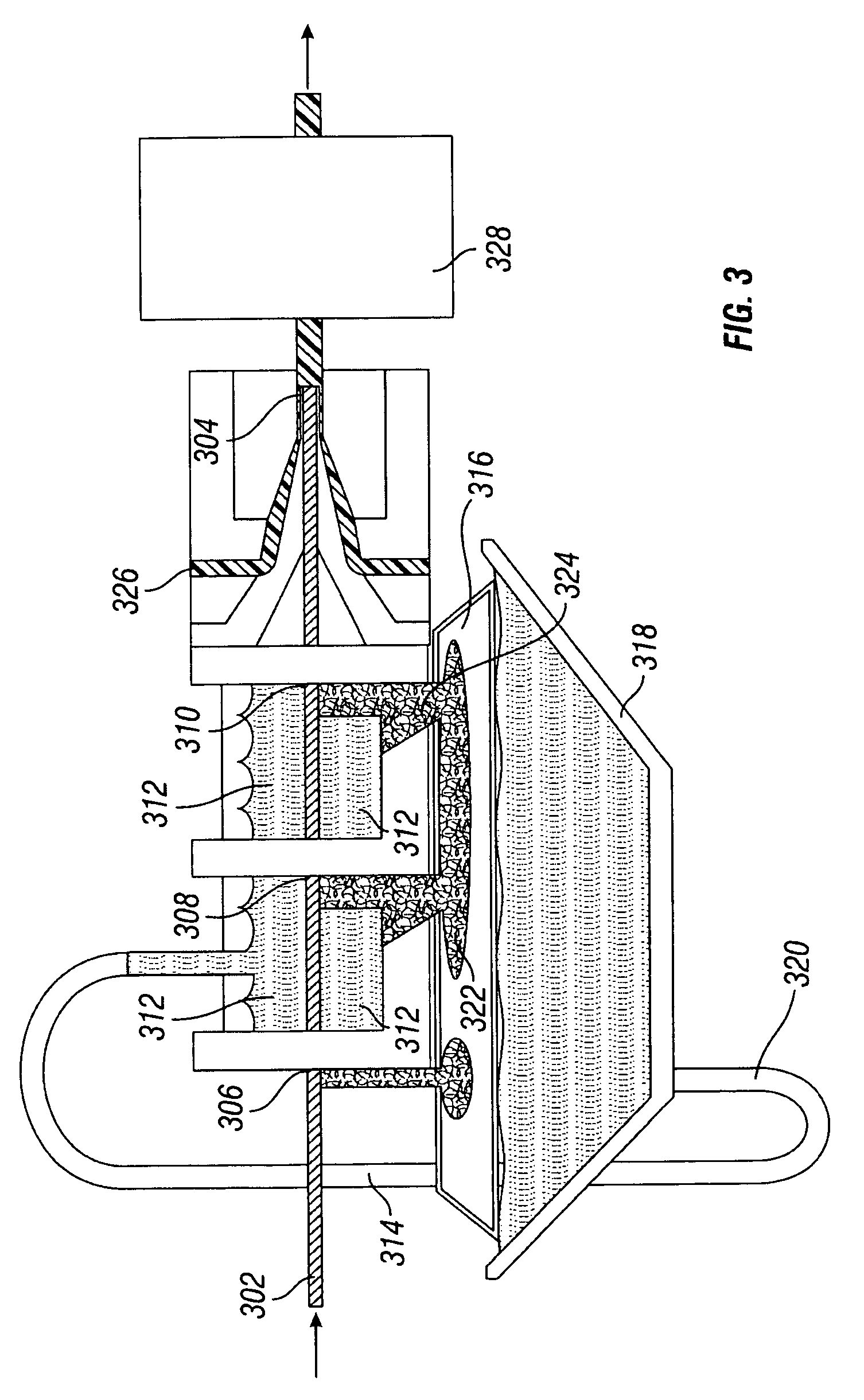Methods of manufacturing composite slickline cables
a technology of composite slickline cables and wirelines, which is applied in the field of manufacturing wireline composite slickline cables, can solve the problems of difficulty in removing the oil or gas trapped in the cable, inherently low strength, and the inability to use the slickline cable with much pull force, and achieves uniform circular cross-sectional shape and minimize the variation in diameter
- Summary
- Abstract
- Description
- Claims
- Application Information
AI Technical Summary
Benefits of technology
Problems solved by technology
Method used
Image
Examples
Embodiment Construction
[0025]The description and examples are presented solely for the purpose of illustrating the preferred embodiments of the invention and should not be construed as a limitation to the scope and applicability of the invention. While the some embodiments of the invention are described herein as comprising certain materials, it should be understood that the composition could optionally comprise two or more different materials. In addition, the composition can also comprise some components other than the ones already cited. In the summary of the invention and this detailed description, each numerical value should be read once as modified by the term “about” (unless already expressly so modified), and then read again as not so modified unless otherwise indicated in context.
[0026]The invention relates to wellbore slickline electric cables, and methods of manufacturing and using such cables, and particularly methods of manufacturing composite slickline cables. The methods of the invention pr...
PUM
| Property | Measurement | Unit |
|---|---|---|
| diameter | aaaaa | aaaaa |
| diameter | aaaaa | aaaaa |
| diameter | aaaaa | aaaaa |
Abstract
Description
Claims
Application Information
 Login to View More
Login to View More - R&D
- Intellectual Property
- Life Sciences
- Materials
- Tech Scout
- Unparalleled Data Quality
- Higher Quality Content
- 60% Fewer Hallucinations
Browse by: Latest US Patents, China's latest patents, Technical Efficacy Thesaurus, Application Domain, Technology Topic, Popular Technical Reports.
© 2025 PatSnap. All rights reserved.Legal|Privacy policy|Modern Slavery Act Transparency Statement|Sitemap|About US| Contact US: help@patsnap.com



